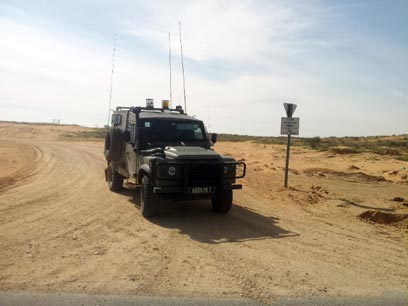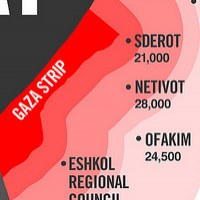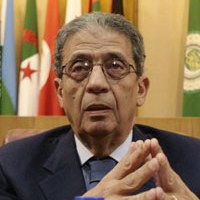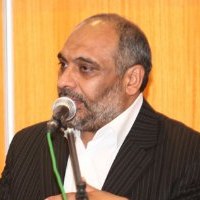![]()
RubinReports | By Barry Rubin
A well-organized, well-equipped group of terrorists has attacked Israel from Egyptian territory Monday morning, possibly the second such Egyptian-assisted assault in a week.
As for the presidential election: Brotherhood candidate Muhammad al-Mursi is now clearly the likely winner by about 52 to 48 percent. His rival, Ahmad Shafiq, won Cairo by a big margin but it was not enough to overcome al-Mursi’s lead in the countryside. The Muslim Brotherhood and Salafists are claiming victory and appear to be accurate in doing so. Official results will be released on June 21.
Al-Mursi has openly declared his support for Hamas and priority on battling Israel on some level. Those campaigning for him, in his presence, have said that the Brotherhood is seeking a Sharia state in Egypt and a caliphate over the whole Middle East whose capital will be in a conquered Jerusalem. The Salafists — a coalition of many hardline Islamist groups — gave the Brotherhood candidate full support.
An armed squad of two men — said to be Hamas, though this is not confirmed — crossed the border after travelling 30 miles from the Gaza Strip through Egyptian territory. They wore flak jackets, camouflaged uniforms, and carried a large amounts of explosives. Members of their support team remained on the Egyptian side of the border. The two men hid by Israel’s highway 12, near an area called White River Lake.
When two vehicles came by, carrying workers finishing up a security fence to guard against just such attacks, they set off a bomb that had been placed on the roadway and fired a rocket-propelled grenade. Both missed but bullets from a Kalashnikov hit one of the vehicles which flipped over. One Israeli, an ethnic Arab labor contractor, was killed, two or three terrorists have been shot dead.
Within minutes, Israeli soldiers arrived and fired on the terrorists. Their bullets blew up a suicide vest being worn by one of them, killing two of the attackers.
This event follows a report in Haaretz newspaper, attributed to Israeli security officials, that the Muslim Brotherhood had asked Hamas to attack Israel. According to the story, an Egyptian Bedouin unit was given the job of firing a rocket, which landed in open ground in southern Israel. This story was not picked up by other Israeli newspapers, suggesting either that it was wrong or that it had been a security leak which the army had then stopped.
So far this year, 280 rockets have been fired from the Gaza Strip into Israel. This has prompted no international concern or action. The new fence along the Egypt-Israel border is mostly complete but due to difficult terrain the last portion will only be finished late this year.
At any rate, we are now at the beginning of Egypt’s involvement, directly or indirectly, in a new wave of terrorist assault on Israel. If the Muslim Brotherhood takes over Egypt, a likelihood made less probable perhaps by the military’s dissolution of parliament, this offensive will enjoy official support. Even if the army remains in control, the Brotherhood and Salafists will use their considerable assets to back this new insurgency war.
The ultimate scenario would be if Hamas decided to renew a large-scale offensive against Israel from the Gaza Strip using rockets, mortars, and attempted cross-border attacks. Egyptian Islamists would send volunteers and money. The Egyptian army would not be scrupulous in stopping the smuggling of weapons, terrorists, and money across the border. As Egyptian fighters are killed in the Gaza Strip the hysteria in Egypt would escalate.
In such a scenario, the army would also allow Hamas to have military bases and headquarters on Egyptian territory, where Israel could not attack them. Indeed, this is already happening. And the Egypt-Israel border would not be protected from cross-border attacks.
A most serious scenario would be if Egypt itself was dragged (under an army regime) or went willingly (under a Brotherhood one) to war with Israel.
At the same time, however, that’s a longer-term perspective. The army is almost certain to remain in power for the next year. The Brotherhood is not taking over Egypt at this point. That is the effect of the military’s coup: the president has no power.
If I were to speculate — and forgive me if I’m wrong on this point — here’s how I see the timetable:
— The army stays in power and announces a parliamentary election near the end of this year or early 2013.
— After the election, if it is held, the parliament would be given six months to write a new constitution. That puts us into mid-2013.
— If there is a lot of violence and conflict, the military might at some point suspend elections, and here we are back in 1952 with a “new” military regime in power for many years. I don’t see the Islamists defeating the army in a battle.
— Might there be a deal in which the Brotherhood gets limited governing power in return for doing what the army wants on key issues? Maybe.
Of course, everything here is unprecedented and unpredictable.
Where is the U.S. government in all of this? It’s insisting that the Egyptian military turn power over to a civilian government which, until last week, would have been a Brotherhood government. Washington is merely a distant observer, and one continuing to insist on Muslim Brotherhood moderation despite that group’s extremist history and actions. The policy choice taken by Obama is to issue statements supporting democracy and to view the Brotherhood as a force that can be coopted and moderated. The mass media generally follows this lead in setting the narrative.
A different president would understand that the Islamists are the enemy of America and support the military in trying to limit their power. This distinction matters big-time. It helps determine not only the fate of U.S. interests but also the future of 80 million Egyptians, Israel’s security, and the likelihood of further upheavals and wars in the Middle East.
Barry Rubin is director of the Global Research in International Affairs (GLORIA) Center and editor of the Middle East Review of International Affairs (MERIA) Journal. His book, “Israel: An Introduction“, has just been published by Yale University Press. Other recent books include “The Israel-Arab Reader” (seventh edition), “The Long War for Freedom: The Arab Struggle for Democracy in the Middle East” (Wiley), and “The Truth About Syria” (Palgrave-Macmillan). The website of the GLORIA Center and of his blog, Rubin Reports. His original articles are published at PJMedia.



 RSS
RSS











Latest Comments
Hello Mike, Thank you for your positive feedback to the article. I felt there wasn’t too much critical analysis of ...
Thanks for this considered and well constructed article. A follow up article on the manner in which the editorial contro...
THE CLUELESSNESS OF CLAIMING THAT OBAMA'S MIDDLE EAST POLICIES WERE A FAILURE CANNOT BE FURTHER FROM THE TRUTH, WHAT THE...
As long as Obama is the president of the usa do not trust the us government......
Thank you for an good read....